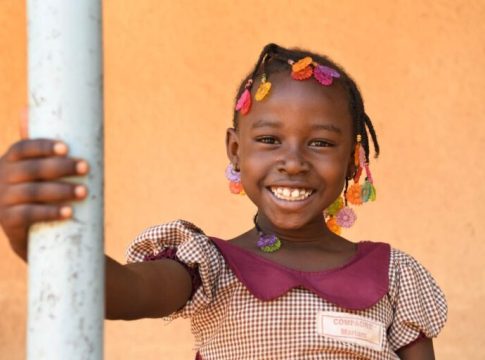As someone who lived the harsh realities of growing up as a farmer’s son in Ghana, I’ve experienced firsthand the struggle of enduring the “hunger season” between planting and harvest. This cyclical period of uncertainty, where meals were not guaranteed, shaped my childhood. Despite these challenges, the value placed on education and the support from my community propelled me forward, enabling me to chase dreams far beyond my village.
However, the journey to education is steeped in difficulty when basic needs like nutrition and hydration are not met. My own experiences of balancing daily chores with academic aspirations underpin a fundamental truth: an opportunity arises on the foundation of fulfilled basic needs.
The International Day of the African Child on June 14 should not just be an annual observance but a daily reminder of the millions of African children deprived of a conducive start to life. Originating from the 1976 Soweto protests, today it signifies a commitment to improving the lives of children across Africa, advocating for their rights, and unlocking their potential.
Alarming figures from the Global Report on Food Crises highlight the dire situations in countries like the Democratic Republic of the Congo (DRC), Nigeria, and Sudan, where acute food insecurity is compounded by conflict, exacerbating child rights violations.
READ MORE: President Tinubu Gives 48- Hours Ultimatum For New Minimum Wage Proposal
In DRC, internal displacement has escalated a hunger crisis, necessitating urgent humanitarian aid. Similarly, Sudan’s ongoing conflict has pushed millions toward acute food insecurity, with children among the most affected by severe malnutrition. Nigeria’s scenario, while different, sees millions of children at risk of malnutrition amid rising inflation, affecting their physical and cognitive development profoundly.
Addressing hunger transcends a moral duty; it’s an economic strategy crucial for the future. With a significant fraction of the global workforce and demographic growth projected to come from India and sub-Saharan Africa, the potential for a global demographic dividend exists. However, this possibility hinges on our commitment to nurturing and unlocking the potential within every child.
Investments in tackling chronic malnutrition in children have shown to yield significant returns, yet global efforts remain insufficient. As we commemorate the International Day of the African Child, let it be a clarion call for sustained efforts to ensure every child can access the nutrition they need to learn, grow, and dream. Only then can we truly harness the demographic dividend and propel Africa and indeed, the world, towards a brighter future.
SOURCE: CEO, Action Against Hunger




